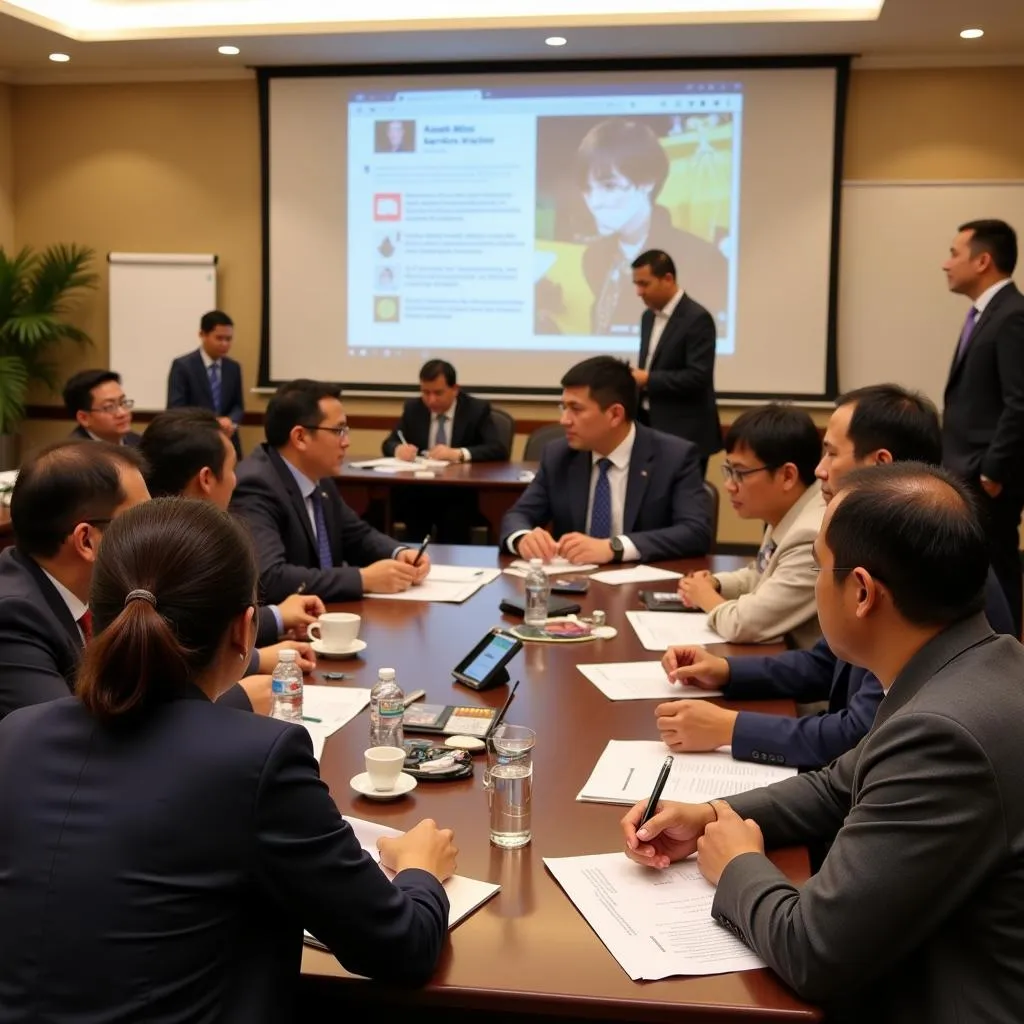The 2015 Asean Convention Against Trafficking In Persons, often referred to as the ACTIP, marked a pivotal moment in Southeast Asia’s fight against human trafficking. This legally binding agreement between all ten ASEAN Member States signified a unified front against this complex crime and demonstrated a regional commitment to eradicating modern-day slavery. The convention outlines a comprehensive framework for prevention, protection, prosecution, and reintegration of victims while fostering deeper collaboration among ASEAN countries.
Understanding the Gravity of Human Trafficking in Southeast Asia
Southeast Asia, with its porous borders, economic disparities, and large migrant worker populations, has become a hub for traffickers. Individuals are often lured by false promises of employment, subjected to forced labor, sexual exploitation, or even organ harvesting. The vulnerability of marginalized communities, including women, children, and migrant workers, further exacerbates the issue.
Key Pillars of the 2015 ASEAN Convention Against Trafficking in Persons
The ACTIP stands on four crucial pillars that provide a holistic approach to combatting human trafficking:
- Prevention: This pillar emphasizes raising public awareness about the dangers of trafficking, promoting safe migration channels, and addressing the root causes, such as poverty and lack of education.
- Protection: The convention mandates Member States to ensure the safety, well-being, and rights of victims, providing access to legal, medical, and psychosocial support.
- Prosecution: Holding traffickers accountable for their crimes is crucial. ACTIP encourages countries to harmonize legal frameworks and strengthen law enforcement capacity to investigate and prosecute trafficking cases.
- Reintegration: The convention acknowledges the long-term needs of survivors and emphasizes facilitating their social and economic reintegration into society.
 Support group for victims of human trafficking
Support group for victims of human trafficking
Strengthening Regional Cooperation: A Crucial Aspect of the ACTIP
The 2015 ASEAN Convention Against Trafficking in Persons recognizes that transnational cooperation is essential for effectively addressing this complex crime. The convention fosters collaboration in several key areas:
- Information Sharing: Establishing mechanisms for sharing intelligence and best practices among law enforcement agencies within ASEAN countries.
- Mutual Legal Assistance: Facilitating extradition requests and providing legal assistance across borders to ensure traffickers are brought to justice.
- Capacity Building: Providing training and resources to law enforcement, judiciary, and social service providers across the region to enhance their capacity to combat trafficking.
What does the 2015 ASEAN Convention Against Trafficking in Persons mean for victims?
The convention represents a beacon of hope for victims of human trafficking, placing their rights and well-being at the forefront. It ensures:
- Non-Punishment: Victims are not to be criminalized for acts committed as a direct result of being trafficked.
- Access to Justice: The convention emphasizes providing victims with legal counsel, facilitating their access to compensation, and ensuring their voices are heard.
- Recovery and Reintegration: The ACTIP underscores the importance of providing long-term support and assistance to survivors, enabling them to rebuild their lives.
 ASEAN workshop on combating human trafficking
ASEAN workshop on combating human trafficking
The Road Ahead: Challenges and Opportunities
While the 2015 ASEAN Convention Against Trafficking in Persons represents a significant step forward, challenges remain:
- Implementation: Translating the convention’s provisions into concrete action and ensuring effective implementation across all ASEAN states.
- Resource Allocation: Dedicating sufficient resources to support the various initiatives outlined in the convention, including victim support services, law enforcement training, and public awareness campaigns.
- Addressing Root Causes: Tackling the underlying socio-economic factors that contribute to trafficking, including poverty, inequality, and lack of opportunity.
Despite the challenges, the ACTIP lays the groundwork for a future where Southeast Asia is free from the scourge of human trafficking. Continued commitment from ASEAN Member States, civil society organizations, and the international community is crucial to turn this vision into a reality.
Conclusion: A Collective Responsibility to End Human Trafficking
The 2015 ASEAN Convention Against Trafficking in Persons signifies a united stand against a crime that robs individuals of their dignity and freedom. It emphasizes the collective responsibility of all sectors of society to work together to protect the vulnerable, ensure justice for survivors, and create a future where human trafficking is eradicated from Southeast Asia.
FAQs about the 2015 ASEAN Convention Against Trafficking in Persons
1. How does the ACTIP define human trafficking?
The ACTIP adopts a comprehensive definition of trafficking in line with international standards, encompassing various forms of exploitation, including forced labor, sexual exploitation, and organ removal.
2. What is the role of civil society organizations in implementing the ACTIP?
Civil society organizations play a crucial role in raising awareness, providing victim support services, advocating for policy changes, and monitoring the implementation of the convention.
3. How can I report suspected cases of human trafficking?
Each ASEAN Member State has designated hotlines and reporting mechanisms. You can also contact international organizations such as the International Organization for Migration (IOM) or the United Nations Office on Drugs and Crime (UNODC).
Need more information or support?
Contact us at:
Phone Number: 0369020373
Email: aseanmediadirectory@gmail.com
Or visit us at: Thôn Ngọc Liễn, Hiệp Hòa, Bắc Giang, Việt Nam.
Our dedicated team is available 24/7 to assist you.
